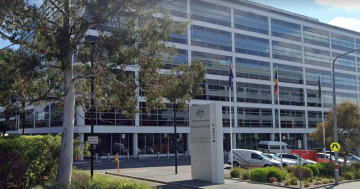
All BIIP applications lodged after 1 July 2023 will be rejected while the government reviews the program and considers the creation of a new ‘Talent and Innovation’ visa. Photo: File.
Any new applications to the Business Innovation and Investment Program (BIIP) will be denied following the Federal Government’s decision to close it after the Productivity Commission found BIIP (AKA the ‘golden visa’ program) – which makes up a quarter of all migration allocations – had failed in its mandate to raise foreign investment, innovation and genuine entrepreneurship.
Last year’s review of the migration system found that skilled migrants contributed $300,000 more in benefits to the country over their lifetime than those who had entered through BIIP.
Now the government will shift its focus to increasing the amount of skilled workers migrating to Australia, which they expect to raise $3 billion over the next decade.
Central to the decision was the Productivity Commission’s revelations that foreign criminals and corrupt regime officials had been using the program’s Significant Investor Visa (SIV) to automatically gain permanent residence in Australia for a minimum investment of $5 million. The SIV had no upper age limit and allowed investors to achieve citizenship, even if they had only spent 40 days in the country and could not speak or didn’t intend to learn English.
Sustainable Population Australia welcomed the government’s decision to close the golden visa program, which national president Jenny Goldie called an outrage in both concept and practice.
“The Australian people opposed it from the beginning and deeply resented that anyone with money could buy a visa, with almost no questions asked. Not one applicant in the last decade has been rejected under the character test that was meant to exclude criminals.
“The BIIP allowed financial advisers, migration agents, banks and specialist investment firms to get rich while the wider community paid the cost.
“Australia is one of the last Western countries to abandon such ‘golden visa’ schemes that have seen corrupt foreign officials parking their money in safe countries. We congratulate the government for pulling the plug but ask: ‘Why did it take so long?'”
In 2022, the Grattan Institute said abolishing the business visa and reallocating its places to other skilled worker applicants would garner around $119 billion over the following three decades.
But at the time, each business investment visa holder was costing the Australian taxpayer $120,000 more in public services than what they contributed in taxes over a lifetime. The Australian Treasury calculations found this compared to an average positive dividend of $198,000 over the lifetime of other skilled migrants.
“[BIIP applicants] tend to be older, which means they spend fewer years in the workforce (or in business) before they retire, and therefore pay tax for fewer years before they begin to draw heavily on government-provided services,” noted the article.
“Only one in 10 hold a postgraduate qualification, compared to one in three other recent skilled visa holders. Less than half have a university degree, compared to 80 per cent of other skilled visa holders, and they generally have lower proficiency in English, which makes it difficult for them to play meaningful managerial roles in growing businesses in Australia.”
On top of these findings, the Grattan Institute discovered that seven out of 10 business investment visas were issued under the ‘innovation’ stream, not the SIV stream. The former stream required a minimum personal wealth of $1.25 million and a stake in a business with an annual turnover of at least $750,000.
“These assets are typically small businesses in retail and accommodation and food services, industries that are not likely to assist the stated goal of the program, which is to boost innovation.”











